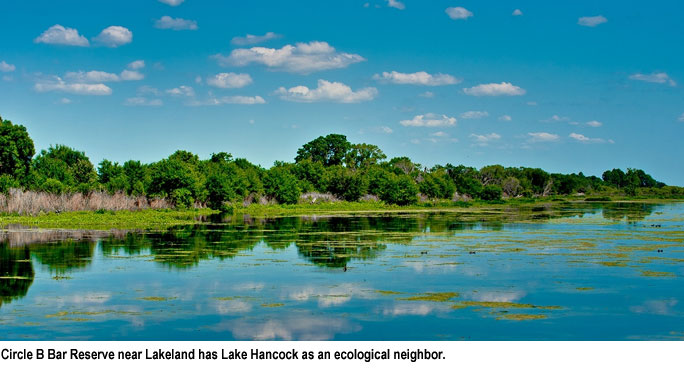During the school year, Melissa Gulvin organizes school trips to agricultural locations, so students attending Polk County schools can see for themselves how these farms operate. It’s proven, she has found, to be an eye-opening experience for the kids. [emember_protected custom_msg=”Click here and register now to read the rest of the article!”]
But Gulvin’s central purpose isn’t to interest students about a possible career in agriculture. She’s the communications director for the Southwest Florida Water Management District, and her interest in those farms has to do not with the crops or farming equipment being used there, but something else entirely: The water that helps these farms operate.
The lesson for students, Gulvin observes, is an important one: How vital and precious Florida’s water system is, and the very critical role that conservation plays in ensuring that we always have it readily available when we turn on the tap.
The District is the host institution for Worldwide Water Education, which has a continuing program called Project Wet, designed to reach out to children, parents, educators, and communities and educate them about the importance of preserving the water supply.
Part of the lesson, she points out, is that not only residents, but also businesses can require a lot of water to operate. That impacts the water supply of the Florida aquifer.
“We look at the different land uses (agriculture being one of them) that impact the flow of water,” Gulvin says.
The water management district office in Brooksville provides funding for all seventh-graders – roughly 7,000 altogether – in Polk County to regularly visit the Circle B Bar Reserve in Lakeland for field trips. The property has been preserved in its natural state to benefit water resources and water quality, and students participate in that by testing the water quality there during the field trip. Circle B Bar Reserve is now owned by the District and managed by the Polk County Natural Resources Department.
“They are collecting the samples and taking it back to the classroom and using test strips on it,” Gulvin says. “They are also taking the temperature of the water and seeing how much is being used. That is just one approach we’ve found in Polk County for testing the water quality. The water management district owns the property and there is actually an educational center there, completed in 2008, and is used for students and the public.”
The District also offers Splash! school grants, up to $3,000, for public school teachers who want to provide students with hands-on opportunities to learn about water conservation, water quality, watersheds, and natural systems. This current school year, there are 12 Splash! school grant projects in Polk County.
In addition, the District provides free publications and materials about water and agriculture, including Water Web Agriculture and Sprinkles Farming, for students who want to learn more.
Taken together, Gulvin says this is a great way to raise awareness among students about water conservation. “They all seem to really like it,” she says of the students. “You can learn a lot through a textbook, but that doesn’t replace learning something first-hand.”
CREDIT
story by MICHAEL FREEMAN [/emember_protected]

